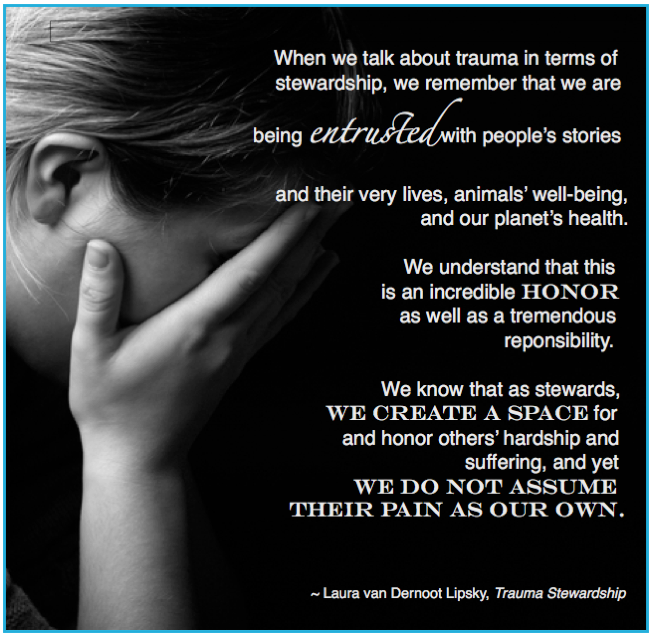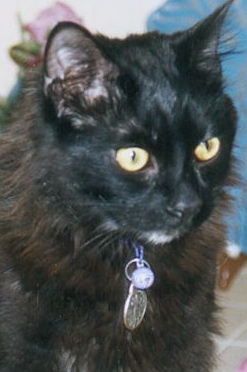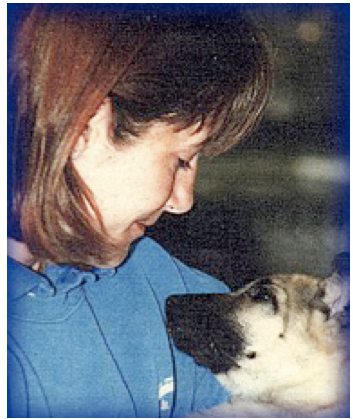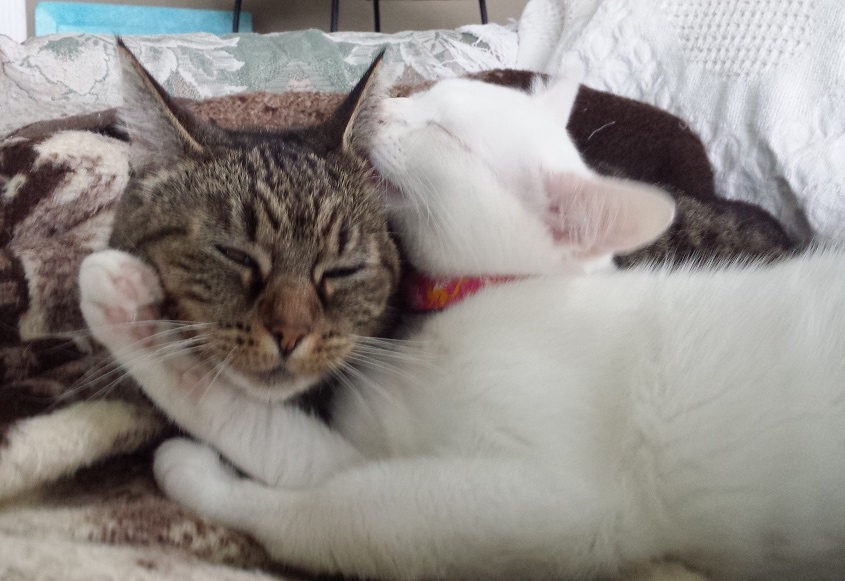Class Details
- Length: 5 sessions, 12 hours total
- Class Format: On-demand teleclass to take anytime, at your convenience. You will receive links to 12 hours of MP3 recordings (from a live class which includes the questions, comments and interactions of the participants with the instructor) and PDF’s containing 148 pages of detailed handouts.
- Tuition: $299 If you work in the animal welfare field or as a volunteer animal activist, please email us for a 50% discount coupon for this class. In your email, please include information on the organization(s) with whom you work and your role.
- Instructors: Teresa Wagner, MS, Program Founder and Laura van Dernoot Lipsky, M.S.W. author of Trauma Stewardship and founder of The Trauma Stewardship Institute
- Who Should Attend: Practitioners who work with animals and/or people who experience loss, grief, trauma or other suffering and want to become more familiar with ways to cope with and heal from the stress of continued exposure to others’ pain. The class is ideal for pet loss grief support practitioners, veterinary professionals, animal communicators and other animal care professionals, energy healers, counselors and
therapists.
- Register: Click here to purchase (This link will automatically redirect you to the Animals in our Hearts web site for purchase.)
- Testimonials: Click here
For students enrolled in the certification program: - This is a required class
- Prerequisite: None
- Required Reading:
• Trauma Stewardship, An Everyday Guide to Caring for Self While Caring for Others, Laura van Dernoot Lipsky, M.S.W.
• The Resilient Practitioner, Burnout Prevention and Self-Care Strategies for Counselors, Therapists, Teachers, and Health Professionals, Third Edition, Thomas M. Skovholt and Michelle Trotter-Mathieson
• Compassion Fatigue in the Animal Care Community, Charles R. Figley, Ph.D. and Robert G. Roop (free download) - Fee for Coaching & Mentoring session held after submission of Written Class Review: $198 (fee not applicable for students who have pre-paid the entire certification program fee which includes these sessions)
Objectives
In this class you will have an opportunity to:
- Reflect upon the meaning, purpose and rewards you derive from your work and the contributions you make
- Understand the definitions and symptoms of burnout, trauma and PTSD and how these differ from compassion fatigue
- Become familiar with the factors that impact the severity of compassion fatigue and what makes us most vulnerable to it
- Complete and reflect upon standardized self assessment tests on compassion fatigue, as well self assessments on job stressors such as heartbreak and sadness, clients with unrealistic expectations and/or challenging attitudes, and workplace stressors
- Become familiar with the Veterinary Field Compassion Satisfaction and Compassion Fatigue research
- Identify the top ten resiliency skills needed to prevent, cope with and heal compassion fatigue
- Become familiar with and practice several strategies to cope with and heal compassion fatigue, both as pre-class work and during the class.
- Increase your knowledge of a range of compassion fatigue support resources
Content and Purpose
Feeling love for animals is easy. Acting on a strong and genuine desire to help animals and the people who love them and mourn for them is commendable. Feeling our own pain in response to their suffering, however, can be overwhelming. When we love animals deeply, when we are sensitive to the pain of people and animals who are hurting and are exposed to their suffering we can become depleted. Whatever our roles to help animals and their people, exposure to their pain—hearing about and witnessing their stress and trauma—can create very real physical, emotional or spiritual fatigue. Compassion can hurt. The compassion fatigue of pet loss grief counselors is real.
Compassion fatigue is an issue of importance for all people who have devoted their lives, their careers or their volunteer time to helping animals and/or the people who care about them: Those who work in animal shelters, rescue, sanctuary and advocacy organizations, those who provide grief support for people who have lost their beloved animals, those who work tirelessly in the animal rights and animal welfare fields, those who work in veterinary medicine and other animal services.
For those who directly help animals and the people who love them, who work tirelessly to save their lives and make their lives better, and those who support animals and humans in grief and trauma, the probability of experiencing compassion fatigue is high. Moreover, because clients who are experiencing grief from the loss of animals are almost always in emotional pain, and often in trauma, the risk of compassion fatigue of pet loss grief counselors is high. From research in the traumatology field we’ve learned that people who are involved with trauma victims are at high risk of experiencing secondary traumatic stress, commonly called compassion fatigue. Compassion fatigue is the unique form of stress experienced only by people helping, treating or supporting trauma victims. It is different from the stress and burnout in that its cause is always related to caring and exposure to others’ crisis.
It takes dedicated, strong, empathic, compassionate and loving people to endure the on-going exposure to the stress and pain of the animals and people they serve. These dedicated, strong, empathic and loving people need support. They need comfort, nurturing, understanding and rejuvenation to continue their work and to lead healthy lives. This class provides in-depth, hands-on education to learn not only everyday coping techniques but long term healing strategies as well.
THE GOLDEN RULES
of COPING with and HEALING
COMPASSION FATIGUE
Continual exposure
to other’s trauma
requires continual processing
of our reactions and feelings.
To heal compassion fatigue, we must learn how to give ourselves the same dedication, love, compassion and care we give the animals and our human clients. We cannot serve the animals we love so dearly and the clients we care so much about if we are chronically fatigued, stressed and burned out. If we are to continue our work giving the best that we have to give and if we are to enjoy our lives, then caring for ourselves must be as important as caring for the animals and our human clients.
~ TW

Session 1: Introduction, Meaning and Self-Assessments
- The value and necessity of self-compassion—a way of life versus a quick-fix pill for compassion fatigue
- Exploring, acknowledging and celebrating the meaning, purpose, rewards and contributions of your role
- Understanding the terms: Stress, Burnout, Trauma, PTSD, Compassion Fatigue (aka Secondary Traumatic Stress, Trauma Exposure Response, Vicarious Traumatization) and Trauma Stewardship
- Symptoms and factors impacting severity of compassion fatigue
- Self-Assessments: Increasing my awareness of the scope and symptoms of compassion fatigue in my life
- Resources for further learning
Session 2: Resiliency Skills, Beliefs and Choices for Coping and Healing
- The “Critical Ten” needed to prevent, cope with and heal compassion fatigue
- Understanding the difference between coping and healing and how they are both necessary
- Stressors unique to the healing arts and helping professions
- The need for logistical policy boundaries to prevent and manage burnout and compassion fatigue
- The need for energetic boundaries of protection to prevent taking in the pain of others (animals and humans)
- Understanding the unique compassion fatigue of pet loss grief counselors
Session 3: Guest Speaker Laura van Dernoot Lipsky
- Laura van Dernoot Lipsky, author of
Trauma Stewardship, An Everyday Guide to Caring for Self While Caring for Others,
talks about the concepts in her book and facilitates a discussion and Q & A period.Laura’s work in trauma/compassion fatigue is unique in that she is the only person in the field to openly acknowledge the suffering of animals and the environment.
Session 4: Coping With and Healing
Intense & Overwhelming Feelings
- Myths, facts and the golden rule of coping with and healing from Compassion Fatigue
- Intense and overwhelming emotions need acceptance, empathy, expression & release
- Understanding the energies and healing requirements of strong, intense feelings
- Core tools to help us cope with and heal strong, intense feelings
- Understanding and healing guilt
- Using the mind in service of the heart
- The Emotional Freedom Technique (EFT), aka tapping
- Using art therapy to build clarity and to express feelings to cope and heal
- The power of humor to help us cope
- Building and maintaining a team of support
- The intentional use of music to cope and heal
- Pacing, respite and balance
- Flower essences to prevent, cope with and heal compassion fatigue
- The healing power of talking with a therapist or counselor
- Exploring and practicing what brings us inner peace
- A guided meditation to ease the tension of compassion fatigue
Testimonials
I learned what to do about my feelings, how to recognize them and how to heal
I really got in touch with feelings and emotions that I had not felt in years, and in a way that I knew exactly what was going on, how to deal with it and how to heal myself in the future. The class is packed with invaluable information, as well as many opportunities to actually experience some of the healing remedies incorporating art, music, journaling, the ‘inventory’ of the current sources of strength in our own lives, what roles are fulfilled by what person, etc. and the sharing of thoughts and ideas. The tools have been invaluable and the amount of information and experiential opportunities was, to me, on the level of a class in a master’s degree program.
One of the highlights was reading Trauma Stewardship and then actually having a presentation from the author Laura van Der Noot Lipsky. And I always treasure the chance to spend time with Teresa, a unique and beautiful spirit.
A very powerful, profound experience where I not only got a lot of information, but I found pieces of my heart and soul that I didn’t know were missing! That is such a gift to me.
The materials were fabulous. The handouts and the book, were absolutely amazing. It’s very hard to get me ‘out of my head,’ and Teresa managed to do that and at the same time, teach me valuable and unforgettable lessons. I will never forget this experience and look forward to more classes. This was not just a class, but a memorable gift that will stay with me forever. The whole class and everything in it, plus the beautiful spirit, to me, is Teresa.
~ MaryJane F, Florida
My most significant learning was the impact of art therapy and music
The class offers a plethora of tools for compassion fatigue. I love that you offered EFT! You gave so much information that is so helpful, and so much insight. And the guest speaker, Laura van Dernoot Lipsky was fantastic! I took away a lot from her, especially her “eyes wide open” concept. I would recommend this class to others because Teresa is so gifted in understanding the language of animals and the unspoken language of those that work with animals and are susceptible to compassion fatigue. Teresa is a gift to the animal world and those that work with animals!
~ Julie S, New York
I learned so many tools that I can use in my life to address grief, anger, guilt, etc.
My most significant learning from this class was EFT. It was so helpful and easy—with measurable results! I loved the guided meditations and sensory rejuvenation. Teresa IS the class! She shares her years of education and experience in such loving manner–she truly cares about each of us!
~ Annette H, California
Incredibly useful presentation of this very important topic!
Tools were well presented in a very accessible way. I’ve done other compassion fatigue courses, and really think is the best overview I’ve seen so far. As always, Teresa was an amazing instructor and mentor!
~ Donald A, Oregon
I will recommend this class to others because it helps you know you’re not alone and that there are things that can be done to help yourself
This class brought up things I hadn’t dealt with and didn’t know were a hidden problem. Working on one issue brought out others and a pattern I had repeated. I had forgotten to even try to do positive things to fill the holes with good.
The art was the most revealing for me. It does help me to go beyond words to express feelings. I see that it would be beneficial to do this regularly. It’s a positive release. I also started a gratitude diary. I especially love the handouts that come with our class. Going back over them helps me see things I’ve either forgotten or didn’t seem real the first time.
Thank you for all the work and thought you put into this class. As always, there are precious life lessons in it. I’m sad that the class is over. The way Teresa does her classes is very personal to the people taking the class. She takes time for individual issues and questions. I don’t think other instructors would be as kind and gentle with their reaching. She’s also good at keeping on track but allowing for personal questions.
~ Linda K, California
The tools, insights, and validations from this class are with me daily
They are part of my life and changing my relationship to myself for the best of me. The class helped validate my behaviors and feelings when I am fatigued. This helped me begin to develop a more compassionate, realistic attitude toward myself.
It made a huge difference in my life right away. I am daily integrating and using so many of the tools. For example, I said something I thought was not too skillful to someone recently and felt my judgement of myself. I then did EFT saying to myself I was worthy of forgiveness. I felt the judgement slip away. Later I called this person and we had a wonderful connection.
Teresa has an extraordinary ability to hold the class and each member in her heart and listen. It is this ability that brings this class to touch our hearts and make a real difference in our lives. Many, many thanks to you Teresa.
~ Mallory V, California
The handouts are rich with wonderful information
The suggested resources list is great, as well. My most significant learning from this class was to be gentle with myself because I have a tendency to judge myself. This class benefits us by offering ways to take care of ourselves while caring for and about other individuals and the world. I also really enjoyed Laura’s book and time with us. I had a lot of awareness shifts reading her book and listening to her speak.
~ Julie L, Wisconsin





